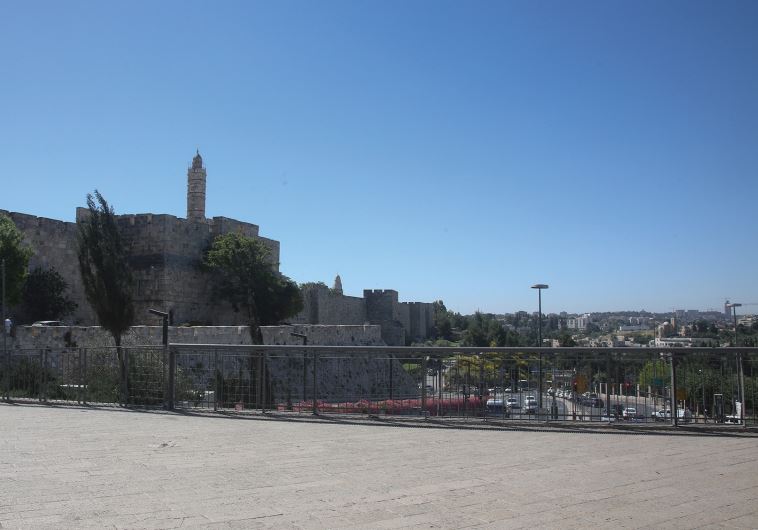Where have all the tourists gone?
Passover is traditionally a time when visitors flood Jerusalem – yet the streets and hotels this year are relatively empty.
 Lots of elbow room in the plaza near Jaffa Gate in the Old City(photo credit: MARC ISRAEL SELLEM)
Lots of elbow room in the plaza near Jaffa Gate in the Old City(photo credit: MARC ISRAEL SELLEM)